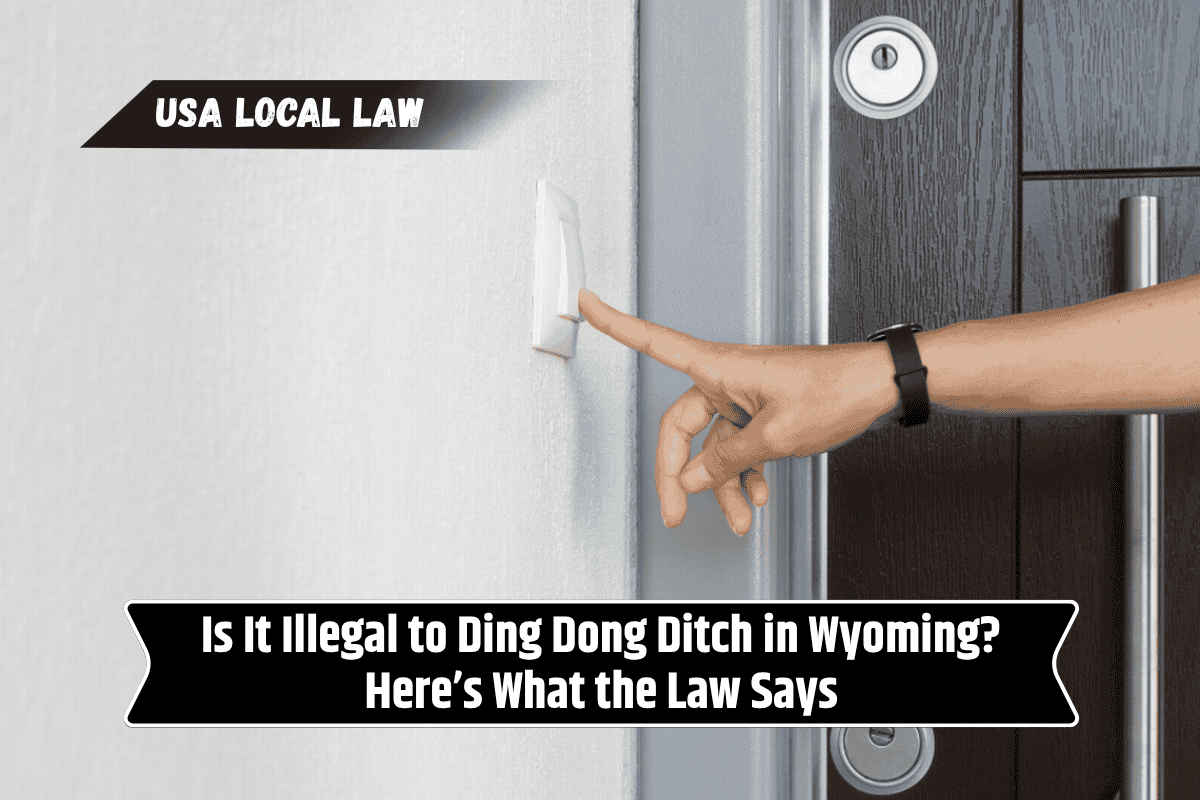“Ding dong ditch”—the prank where someone rings a doorbell and runs away before the homeowner answers—is often seen as harmless fun. However, in Wyoming, this seemingly innocent joke can have legal consequences. Let’s explore the laws that could apply.
Legal Implications in Wyoming
While Wyoming doesn’t have a specific law addressing “ding dong ditch,” several existing statutes could make the prank illegal under certain circumstances:
1. Criminal Trespass
If the prankster enters private property without permission, it may constitute criminal trespass. According to Wyoming Statutes § 6-3-303, criminal trespass occurs when someone enters or remains on another person’s land or premises without authorization.
This offense is classified as a misdemeanor, punishable by imprisonment for up to six months, a fine of up to $750, or both.
2. Harassment
Repeatedly engaging in “ding dong ditch” could lead to charges of harassment. Wyoming law defines harassment as conduct intended to harass, annoy, or alarm another person. If the prank is done persistently or targets a specific individual, it may be considered harassment, which can result in misdemeanor charges.
3. Disorderly Conduct
If the prank causes a public disturbance, it might be classified as disorderly conduct. Wyoming Statutes § 6-6-102 states that a person commits disorderly conduct if they disturb the peace of a community or its inhabitants by unreasonable noise or by using threatening, abusive, or obscene language or violent actions.
This offense is a misdemeanor punishable by imprisonment for up to six months, a fine of up to $750, or both.
When Does It Cross the Line?
The key factor in determining whether “ding dong ditch” is illegal in Wyoming is intent and impact. If the prank is a one-time occurrence and doesn’t cause harm or alarm, it’s less likely to lead to legal trouble.
However, if it’s done repeatedly, causes distress to the homeowner, or leads to property damage, it can result in criminal charges.
In Wyoming, “ding dong ditch” isn’t explicitly illegal, but it can lead to criminal charges under existing laws, especially if it involves trespassing, harassment, or disorderly conduct.
It’s essential to consider the potential legal consequences before engaging in such pranks. Always respect others’ property and privacy to avoid unintended legal issues.
